-
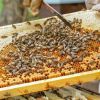 +10 +2
+10 +2Honeybee populations could be wiped out worldwide by wing virus
The global bee population could be endangered by a newly discovered deadly virus, a leading scientist has warned.
-
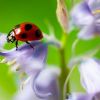 +13 +2
+13 +2Insect decline could massively increase food bills, warn scientists
Losing pollinators in the UK alone could add more than € 2.3 billion a year to food bills, warns charity Buglife.
-
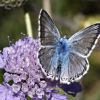 +3 +1
+3 +1UK's flying insects have declined by 60% in 20 years
The UK's insect population has fallen sharply as the invertebrates are affected by rising temperatures and fragmented habitats.
-
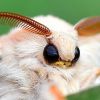 +17 +2
+17 +2The Two Drivers of Massive Insect Population Die-Off Have Finally Been Identified
They help us put food on our tables through pollination and nutrient recycling. They break down and dispose of organic waste, and are food for many animals.
-
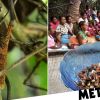 +4 +1
+4 +1Insect that 'tastes like bacon' could help save Madagascar from starvation
Insects that ‘taste like bacon’ could help ease the starvation crisis engulfing Madagascar, a British charity believes. It is hoped that the unlikely snack – apparently enjoyable with a beer – could offer a nutritious food source for thousands if produced en masse. The African nation has faced years of devastating droughts which have left hundreds of thousands of Malagasy people facing starvation and turning to largely inedible plants for food.
-
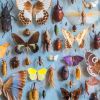 +4 +1
+4 +1The loss of insects is an apocalypse worth worrying about
When European colonists first brought cattle and horses to Australia in the late 1700s, they learned a foul-smelling lesson about how useful certain species of beetles could be. As the hoofed animals ate and defecated, manure began piling up across the continent. Without any European dung beetles to break it down, the cow dung in Australia had nowhere to go.
-
 +23 +4
+23 +4Centipede - Stayin' Alive (Long Version)
-
 +17 +2
+17 +2Scientists find there are 70% fewer pollinators, due to air pollution
Air pollution significantly reduces pollination by confusing butterflies and bees, lessening their ability to sniff out crops and wildflowers. Insects provide pollination of important food crops and native wildflowers, but researchers sought to understand how air pollution affects different pollinating insect species, of which, some rely on scent above all other senses.
-
 +23 +4
+23 +4Felines' love for catnip could be a chemical defense against mosquitoes
A whiff of catnip can send cats into a frenzy but it can also make mosquitoes buzz off. The plant’s active ingredient, nepetalactone, is a super effective natural insect repellent and scientists have only recently found out how catnip keeps insect pests at bay while at the same time driving felines of all shapes and sizes completely nuts.
-
 +4 +1
+4 +1Bugs across globe are evolving to eat plastic, study finds
Microbes in oceans and soils across the globe are evolving to eat plastic, according to a study. The research scanned more than 200m genes found in DNA samples taken from the environment and found 30,000 different enzymes that could degrade 10 different types of plastic.
-
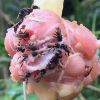 +24 +9
+24 +9Meat-eating bees have something in common with vultures
Mention foraging bees, and most people will picture insects flitting from flower to flower in search of nectar. But in the jungles of Central and South America, so-called vulture bees have developed a taste for flesh. Scientists have puzzled over why the stingless buzzers seem to prefer rotting carcasses to nectar. Now one group of researchers thinks it has cracked the riddle. The key came from looking into the bees’ guts.
-
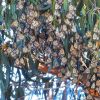 +13 +5
+13 +550 times more monarch butterflies counted this year
Initial results are in and the western monarch butterfly is making a comeback. We're seeing 50 times more monarchs at overwintering sites this year compared to last. Now through Christmas is the best time to see them in Pismo Beach.
-
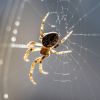 +15 +3
+15 +3Spider Uses its Web Like a Giant Engineered Ear
Bridge spiders "outsource" their hearing by building webs that double as acoustic arrays, allowing them to perceive sounds from great distances.
-
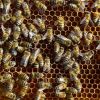 +4 +1
+4 +1Honeybees increase social distancing in response to a common parasite
In news-medical.net published an article which states that Honeybees increase social distancing when their hive is under threat from a parasite, finds a new study led by an international team involving researchers at UCL and the University of Sassari, Italy.
-
 +12 +1
+12 +1Where Have All the Insects Gone?
Scientists who once documented new species of insects are now charting their perilous decline—and warning about what it will mean for the rest of us.
-
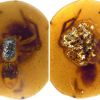 +12 +1
+12 +1This is the oldest fossil evidence of spider moms taking care of their young
Her corpse, preserved alongside her offspring in amber for 99 million years, is the oldest physical evidence for maternal care in spiders, says Paul Selden, an invertebrate paleontologist at the University of Kansas in Lawrence. This fossil is one of four showing that some ancient spiders guarded their egg sacs and may even have raised their young, Seldon and his colleagues report September 15 in Proceedings of the Royal Society B.
-
 +21 +2
+21 +2Street lighting has detrimental impacts on local insect populations
Reported declines in insect populations have sparked global concern, with artificial light at night (ALAN) identified as a potential contributing factor. Despite strong evidence that lighting disrupts a range of insect behaviors, the empirical evidence that ALAN diminishes wild insect abundance is limited. Using a matched-pairs design, we found that street lighting strongly reduced moth caterpillar abundance compared with unlit sites (47% reduction in hedgerows and 33% reduction in grass margins) and affected caterpillar development. A separate experiment in habitats with no history of lighting revealed that ALAN disrupted the feeding...
-
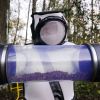 +4 +1
+4 +1A Nest Of Nearly 1,500 Asian Giant 'Murder Hornets' Has Been Eradicated
Officials in Washington state said Thursday they had destroyed the first Asian giant hornet nest of the season, which was located near the town of Blaine along the Canadian border. The Washington state Department of Agriculture said it eradicated the nest Wednesday.
-
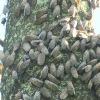 +4 +1
+4 +1Meet the spotted lanternfly, the bug health officials are begging you to kill on sight
Whether you choose to kill insects or not, there is one bug across the northeastern United States health officials want you to take care of immediately: the spotted lanternfly. Though it may seem like a colorful moth worthy of an Instagram post, it's actually an invasive species that can wreak havoc on trees, plants and other landscapes, resulting in millions of dollars in damages.
-
 +4 +1
+4 +1Why Disney World Doesn't Have Mosquitoes
Disney World is billed as the “Happiest Place On Earth” but how is it that they also manage to keep it completely free of mosquitoes?
Submit a link
Start a discussion




















